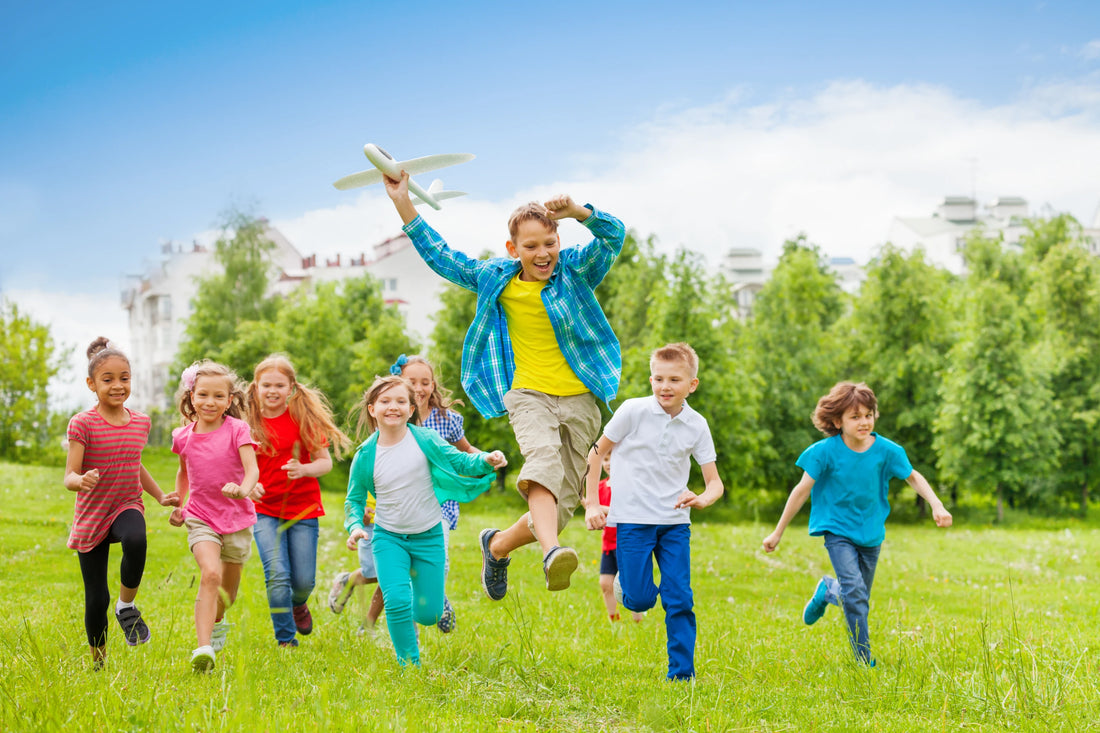
Developing Children Skills with RC Toys
Share
Introduction
Remote-controlled (RC) toys have become a favorite among children of all ages due to their engaging and interactive nature. Beyond the fun and excitement they bring, RC toys also offer numerous developmental benefits for children. This report examines how remote-controlled toys can contribute to the development of essential cognitive, motor, social, and emotional skills in children, supporting their growth and learning in a holistic way.
Cognitive Skill Development
Remote-controlled toys are excellent tools for boosting cognitive development in children. As they play, children are required to think critically, analyze, and make decisions, which enhances their mental capabilities.
- Problem-Solving and Strategy: RC toys often require children to navigate obstacles, figure out the best routes, or complete tasks (e.g., controlling a toy car to reach a target). This helps them develop problem-solving skills and strategic thinking, as they learn to anticipate outcomes and plan their moves.
- Spatial Awareness and Directional Understanding: As children control the movement of the toy in different directions, they develop a better sense of space, distance, and direction. This strengthens their spatial awareness and their ability to understand how objects move in relation to their surroundings.
- Concentration and Focus: To successfully operate RC toys, children must maintain attention and focus, sharpening their concentration over time.

Motor Skill Development
Playing with remote-controlled toys requires the use of fine and gross motor skills, helping children develop physical coordination and control.
- Fine Motor Skills: Operating an RC toy’s controller demands precise hand movements, such as pressing buttons or moving joysticks, which enhances children’s dexterity and fine motor control.
- Hand-Eye Coordination: Controlling a toy while visually tracking its movement strengthens the connection between the eyes and hands. This improves hand-eye coordination, a skill crucial for many daily activities such as writing, drawing, and playing sports.
- Gross Motor Skills: While playing with RC toys, children may move around to follow the toy, promoting physical activity and contributing to the development of gross motor skills.
Social Skill Development
Remote-controlled toys can also encourage positive social interaction and cooperation, especially when children play in groups.
- Collaboration and Teamwork: RC toys provide an opportunity for collaborative play, as children work together to complete tasks or participate in races. This helps them develop teamwork and cooperation, learning how to work with others toward a common goal.
- Communication and Language Skills: When playing with peers, children often discuss strategies, share ideas, or explain how their toy works, which strengthens their verbal communication and language abilities.
- Turn-Taking and Patience: Sharing an RC toy with friends teaches children the importance of turn-taking, patience, and respect for others. These social skills are essential for building strong relationships.

Emotional Development
Playing with remote-controlled toys offers children a platform to learn important emotional skills, such as managing frustration and building self-esteem.
- Resilience and Problem-Solving: Operating RC toys can be challenging, and children may encounter situations where the toy crashes or doesn’t respond as expected. Overcoming these challenges fosters resilience and perseverance, teaching them to handle setbacks constructively.
- Confidence and Independence: Successfully controlling an RC toy gives children a sense of accomplishment, boosting their self-confidence. As they become more adept at using the toy, they also gain a sense of independence and mastery over their actions.
Creativity and Imagination
Remote-controlled toys open doors to imaginative play, where children can create their own scenarios and adventures. Whether racing cars, exploring with drones, or simulating rescue missions with RC helicopters, children can engage their imagination and build stories around their play.
- Creative Problem-Solving: Children often come up with inventive ways to navigate obstacles or create new challenges for their toys. This fosters creativity and the ability to think outside the box.
- Role-Playing: RC toys encourage children to adopt different roles and characters, such as a racecar driver, a pilot, or an adventurer. This type of imaginative role-playing is essential for developing storytelling abilities and creative thinking.

Conclusion
Remote-controlled toys offer much more than entertainment. They are powerful tools for developing a wide range of skills that are essential for children's overall growth, including cognitive, motor, social, and emotional abilities. By incorporating RC toys into playtime, parents and educators can provide children with opportunities to enhance their problem-solving skills, physical coordination, teamwork, and creativity in a fun and engaging way.
As these toys continue to evolve with technology, their potential to support children's skill development will only grow. Encouraging balanced and interactive play with remote-controlled toys can be an effective strategy for fostering learning and development in today’s fast-paced world.
